It took owning a Steam Deck to finally understand its appeal
I get it. I finally get it.
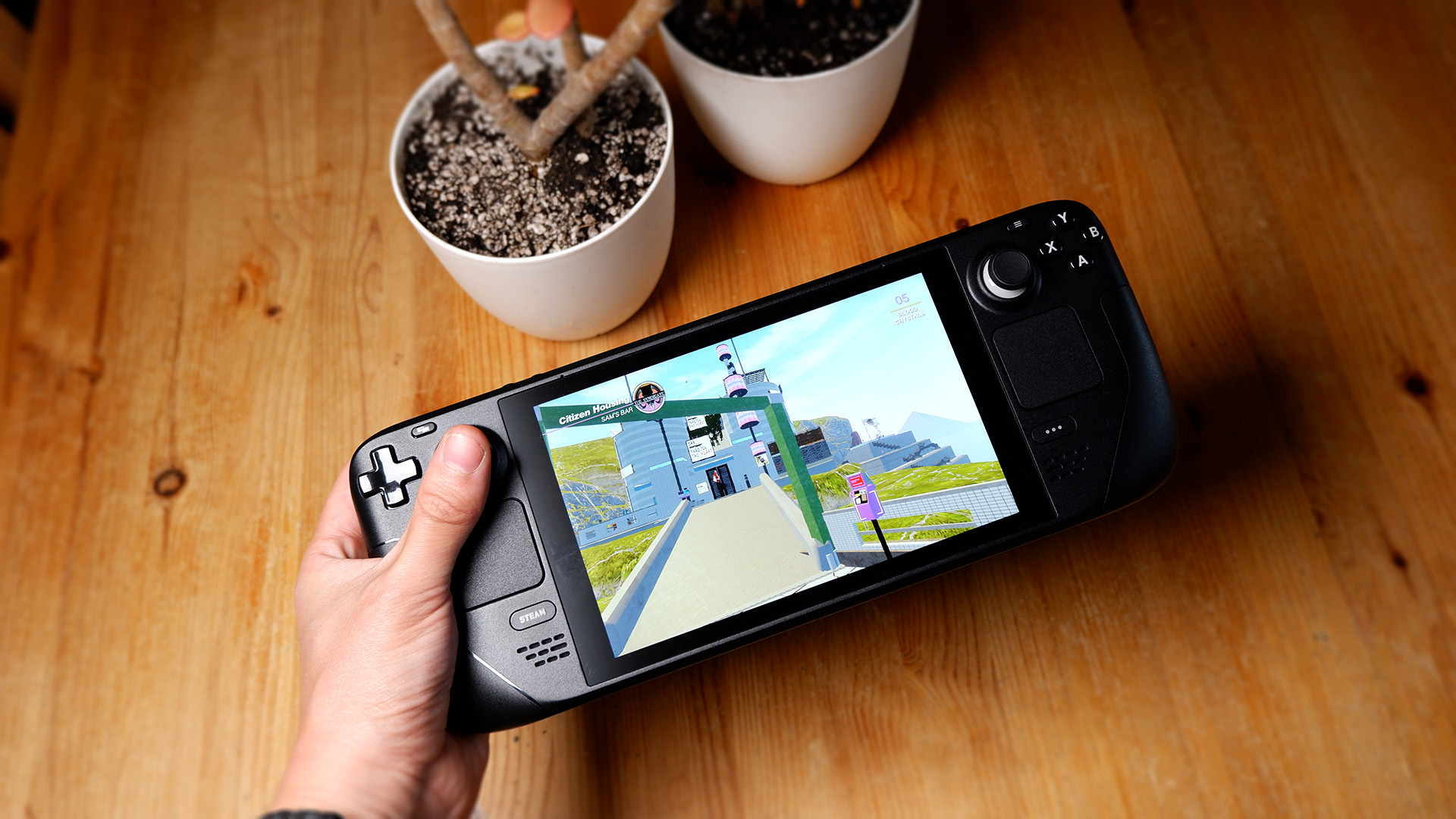
The Steam Deck is the single most exciting gaming hardware I've used in years, it just took some quality time with it alone to understand why.
Prior to this week I've only had passing contact with a Steam Deck. The portable PC from Valve we received in the office is in a constant tug of war between members of the team as to who gets to play it, and if I'm completely honest I wasn't entirely sure why. From a techie perspective, I appreciate what this parsimonious PC has to offer to a busy or budget gamer, but I didn't really think I'd ever use one myself.
I really do think it's a wonderful thing.
Jacob Ridley, Steam Deck liker
When I'm gaming on a desktop PC with enough power to keep up with today's games, it's tough to see what an embedded iGPU inside a low-power device really has to offer me. It's an intriguing device, no doubt about that, and its software stack of compatibility layers and low-overhead Linux operating systems is mighty impressive, but taking my Steam library on the go in a not-so-discreet plastic chassis just hadn't been convincing enough for the hype train to leave the station on this occasion.
I still put down a deposit on day-one to secure the chance to buy a Steam Deck though, even if I wasn't necessarily going to redeem it when the time came.
In the months that followed, a stream of updates for the Steam Deck and SteamOS kept my interest piqued. Valve appears dedicated to this little machine, more so than its previous hardware ventures anyways, and the company has been rapidly improving the state of the device. The praises of my colleagues that were spending hours gaming on the device would eventually sway me, too.
By the time my ticket came up, I'd made a decision: my partner and I would go splitsies and buy one Steam Deck between us—effectively halving the cost and releasing one unwanted Steam Deck back into the ocean. A solid compromise for a device neither of us were completely sold on.
I'm sure glad we made that decision.
The biggest gaming news, reviews and hardware deals
Keep up to date with the most important stories and the best deals, as picked by the PC Gamer team.
Since my Steam Deck arrived earlier this week, I've been using it religiously to play a bunch of games I wanted to play but hadn't thought I'd ever get around to.
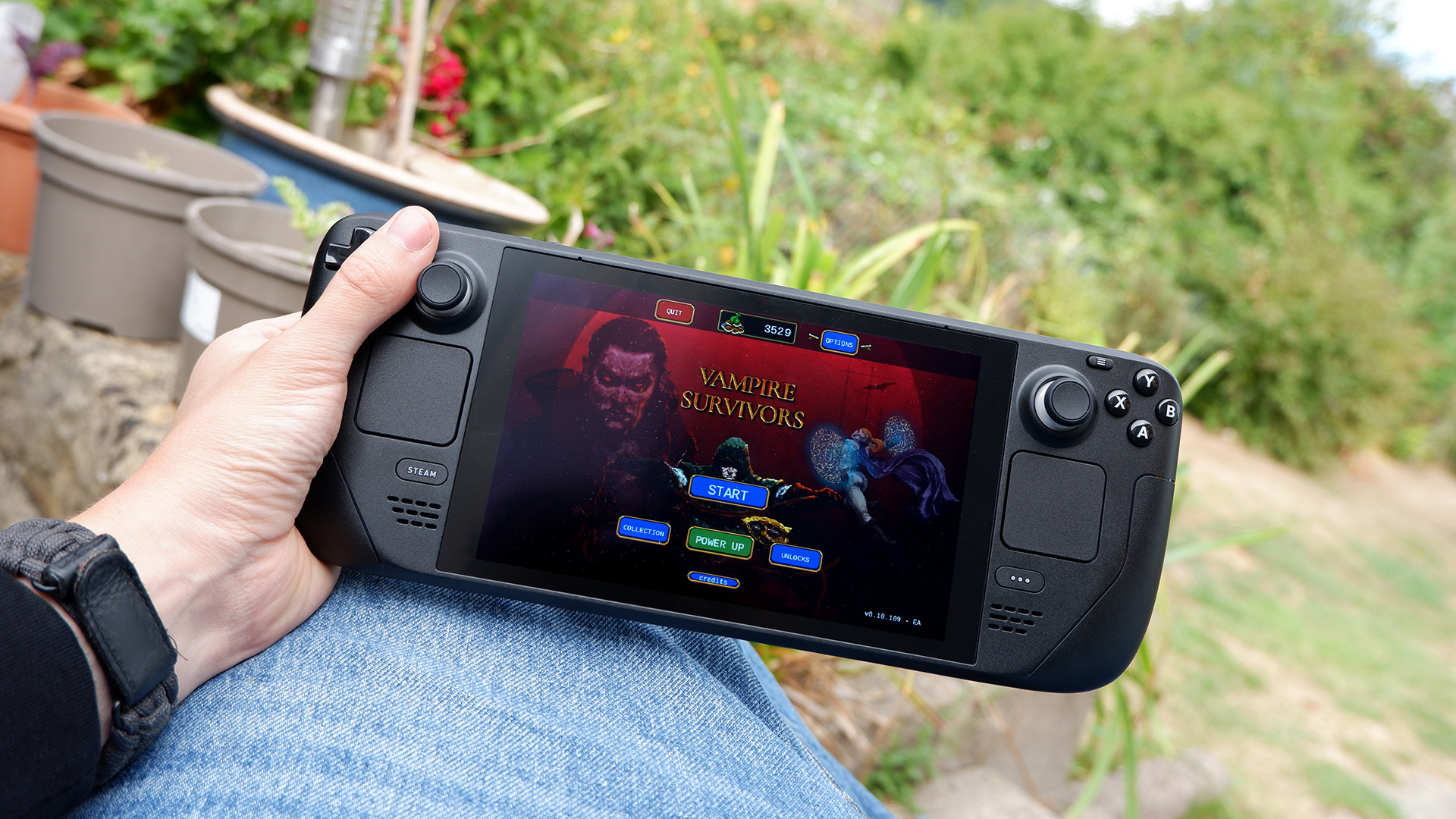
Games such as Vampire Survivors, which is entirely the type of game that's a whole lot of fun to play but not something I would ever sit down at my desktop for the sole purpose of playing. A single-stick survival game, it makes for a perfect casual fling for playing in bed in the evening. Crushing hoards of ghoulish critters with a god-like combo of garlic and dual-wielded whips, with only a single push of an analogue stick, is my idea of a good time, and one that I wouldn't have experienced if it wasn't for the Deck.
Though there are plenty of other games I've been playing too, including Strange Horticulture, Paradise Killer, and Hades. These are the type of game that I buy, promise myself that 'this one will be different' and 'I'll definitely find the time', and then never do. I'm sure we all have some in our library like that.
Yet these three games are rated 'Great on Deck' and work like a charm even while I'm sitting on the sofa.
My Steam Deck has become a vessel for the too-easily side-lined games in my library, and in that way it's quite similar to my Nintendo Switch. However, unlike my Switch, I'm not having to buy these games over again, and I'm just accessing them right from my library where they've been lying dormant for arguably too long. Plus my saves carry over between PC and Deck, which is doubly neat.
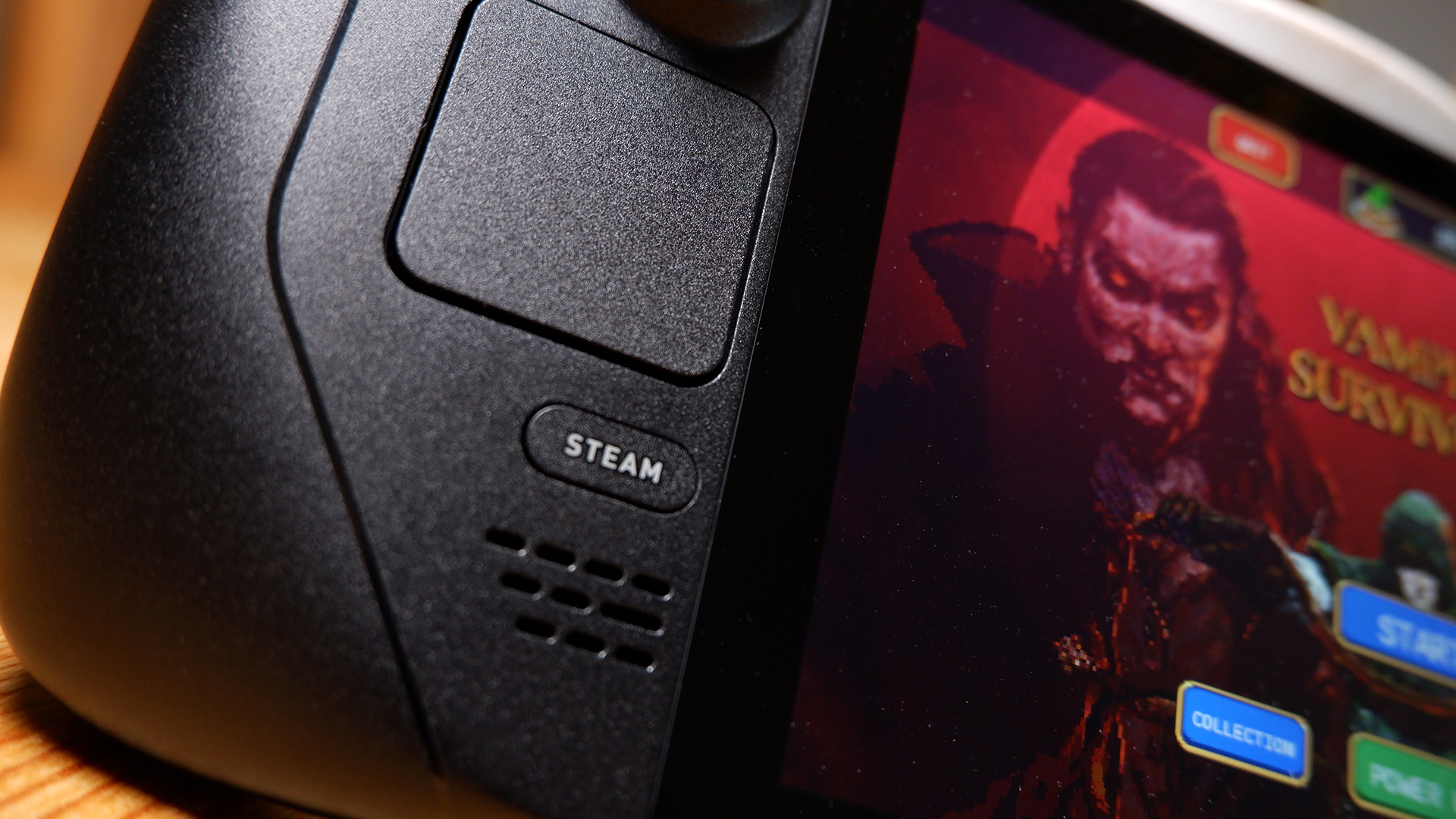
This isn't an article regarding which is better, the Switch or the Deck. Both are favourites of mine, and if anything I've been quite surprised that the Steam Deck has fit snugly into my life despite owning both a PC and a Switch already.
My Steam Deck has become a vessel for the too-easily side-lined games in my library.
Jacob Ridley, Steam Deck liker
The desk, or lack thereof, is a key part of the appeal of the Steam Deck for me, and it's partially solved an issue with my gaming life ever since the beginning of the Covid-19 pandemic. Yes, in singing praise of the Steam Deck I am going to have to mention the pandemic, but it's had a real impact on my enjoyment of spending an evening 'in' playing games at my desk. That's largely because, since the pandemic, I've been working from behind the same small desk for eight hours a day. The thought of continuing to sit in that same chair for any longer not only gives me cabin fever but makes my spine want to escape my body and find a new host that actually cares about ergonomics.
With the Steam Deck being such an easy pick-up-and-play device, it's very neatly, if only partially, solved that issue for me. No more feeling guilty for sitting and playing games at my desk after I'm done with work, which was really starting to seep into my psyche and prevent me from getting all that into some games.
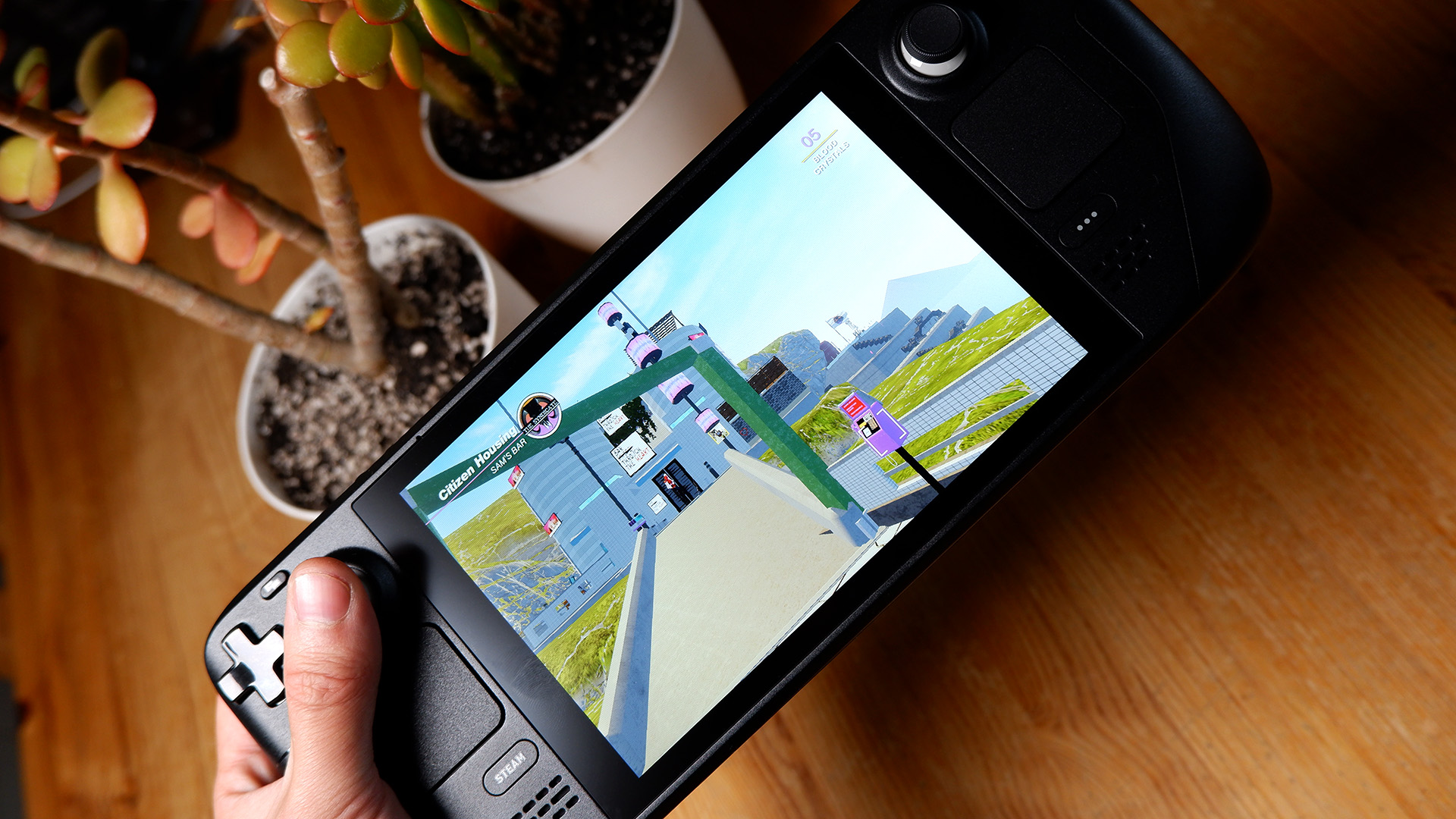
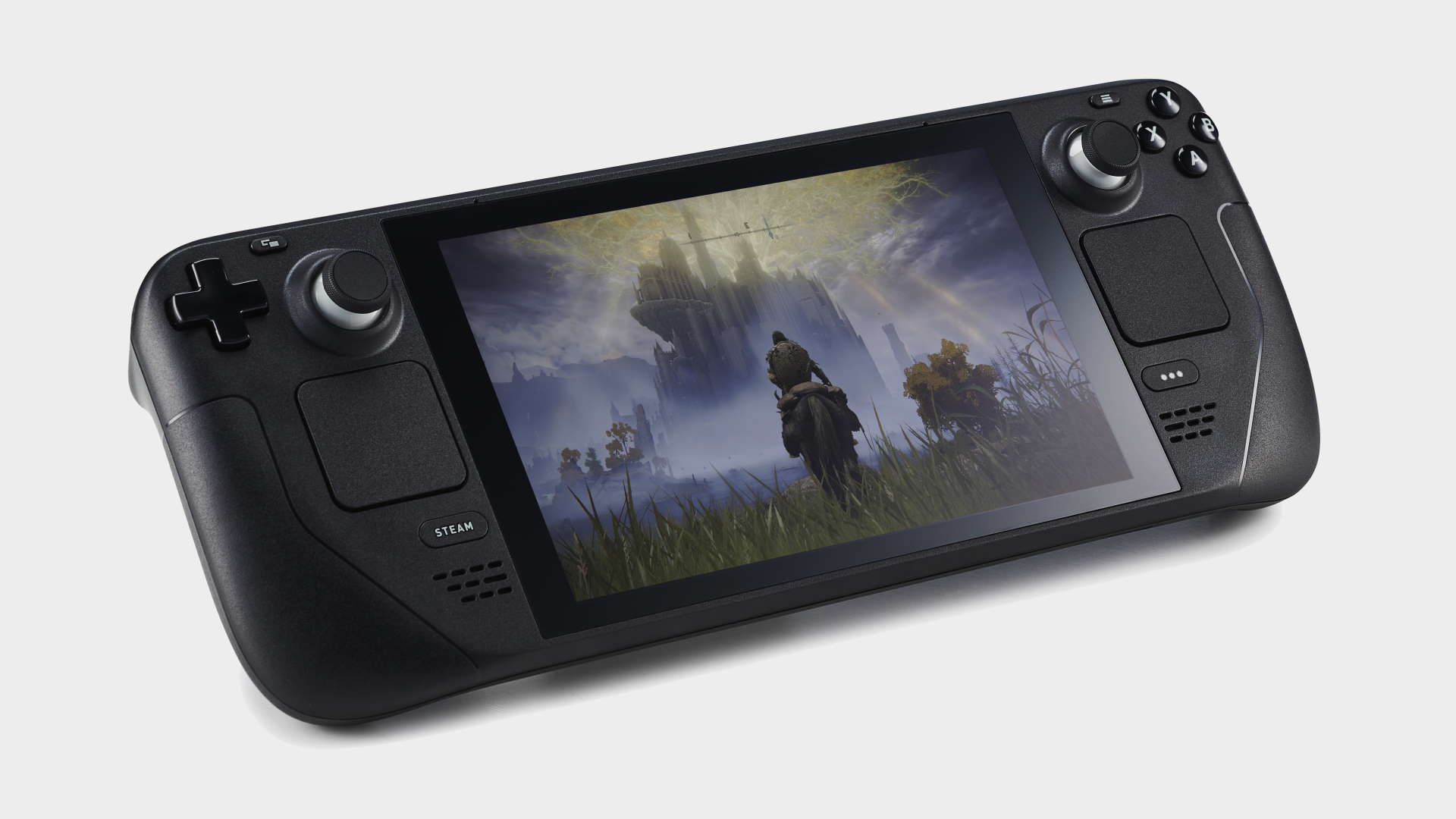
Steam Deck review: Our verdict on Valve's handheld PC.
Steam Deck availability: How to get one.
Steam Deck battery life: What's the real battery life of the new device?
How loud is the Steam Deck? And will it pass the Significant Other test?
Steam Deck - The emulation dream machine: Using Valve's handheld hardware as the ultimate emulator.
Admittedly, the Steam Deck isn't perfect. Destiny 2 is still missing-in-action due to anti-cheat shenanigans that may or may not ever be solved, which is a travesty, and the battery life doesn't make it feel like a device that's designed for leaving the house with. It also is far too tempting to use this device almost exclusively for a third playthrough of Disco Elysium, and that probably not be the best use of it.
Or is it?
Anyways, for letting me slip back into my pre-Covid gaming habits, and to dip my toe back into smaller games between all the major releases, I really do think it's a wonderful thing.
Perhaps then this testimony will help someone else on the fence—I wasn't all that convinced at the start of this Steam Deck journey yet I've found its practical use to far surpass my expectations. That's why it's such a genuinely exciting piece of new hardware, and a rather polished one too despite its very recent beginnings. It's not often I run into that in this line of work, strangely enough.

Jacob earned his first byline writing for his own tech blog. From there, he graduated to professionally breaking things as hardware writer at PCGamesN, and would go on to run the team as hardware editor. He joined PC Gamer's top staff as senior hardware editor before becoming managing editor of the hardware team, and you'll now find him reporting on the latest developments in the technology and gaming industries and testing the newest PC components.

